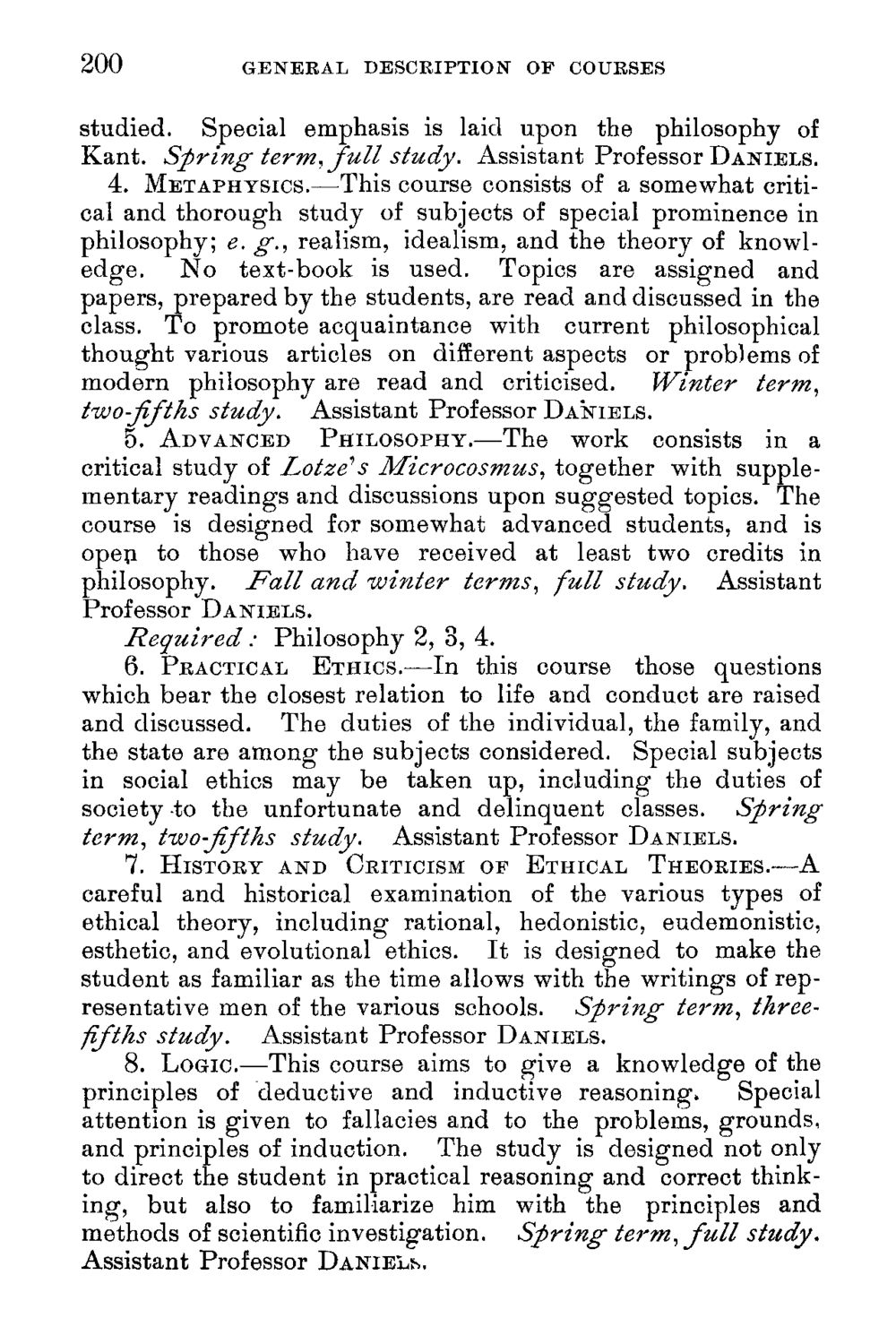| |
| |
Caption: Course Catalog - 1895-1896
This is a reduced-resolution page image for fast online browsing.

EXTRACTED TEXT FROM PAGE:
200 GENERAL DESCRIPTION" OF COURSES studied. Special emphasis is laid upon the philosophy of Kant. Spring term, full study. Assistant Professor DANIELS. 4. METAPHYSICS.—This course consists of a somewhat critical and thorough study of subjects of special prominence in philosophy; e. g., realism, idealism, and the theory of knowledge. No text-book is used. Topics are assigned and papers, prepared by the students, are read and discussed in the class. To promote acquaintance with current philosophical thought various articles on different aspects or problems of modern philosophy are read and criticised. Winter term, two-fifths study. Assistant Professor DANIELS. 5. ADVANCED PHILOSOPHY.—The work consists in a critical study of JLotze's Microcosmus, together with supplementary readings and discussions upon suggested topics. The course is designed for somewhat advanced students, and is open to those who have received at least two credits in philosophy. Fall and winter terms, full study. Assistant Professor DANIELS. Required: Philosophy 2, 3, 4. 6. PRACTICAL ETHICS.—In this course those questions which bear the closest relation to life and conduct are raised and discussed. The duties of the individual, the family, and the state are among the subjects considered. Special subjects in social ethics may be taken up, including the duties of society to the unfortunate and delinquent classes. Spring term, two-fifths study. Assistant Professor DANIELS. 7. HISTORY AND CRITICISM OF ETHICAL THEORIES.—A careful and historical examination of the various types of ethical theory, including rational, hedonistic, eudemonistic, esthetic, and evolutional ethics. It is designed to make the student as familiar as the time allows with the writings of representative men of the various schools. Spring term, threefifths study. Assistant Professor DANIELS. 8. LOGIC.—This course aims to give a knowledge of the principles of deductive and inductive reasoning. Special attention is given to fallacies and to the problems, grounds, and principles of induction. The study is designed not only to direct the student in practical reasoning and correct thinking, but also to familiarize him with the principles and methods of scientific investigation. Spring term, full study. Assistant Professor D
| |